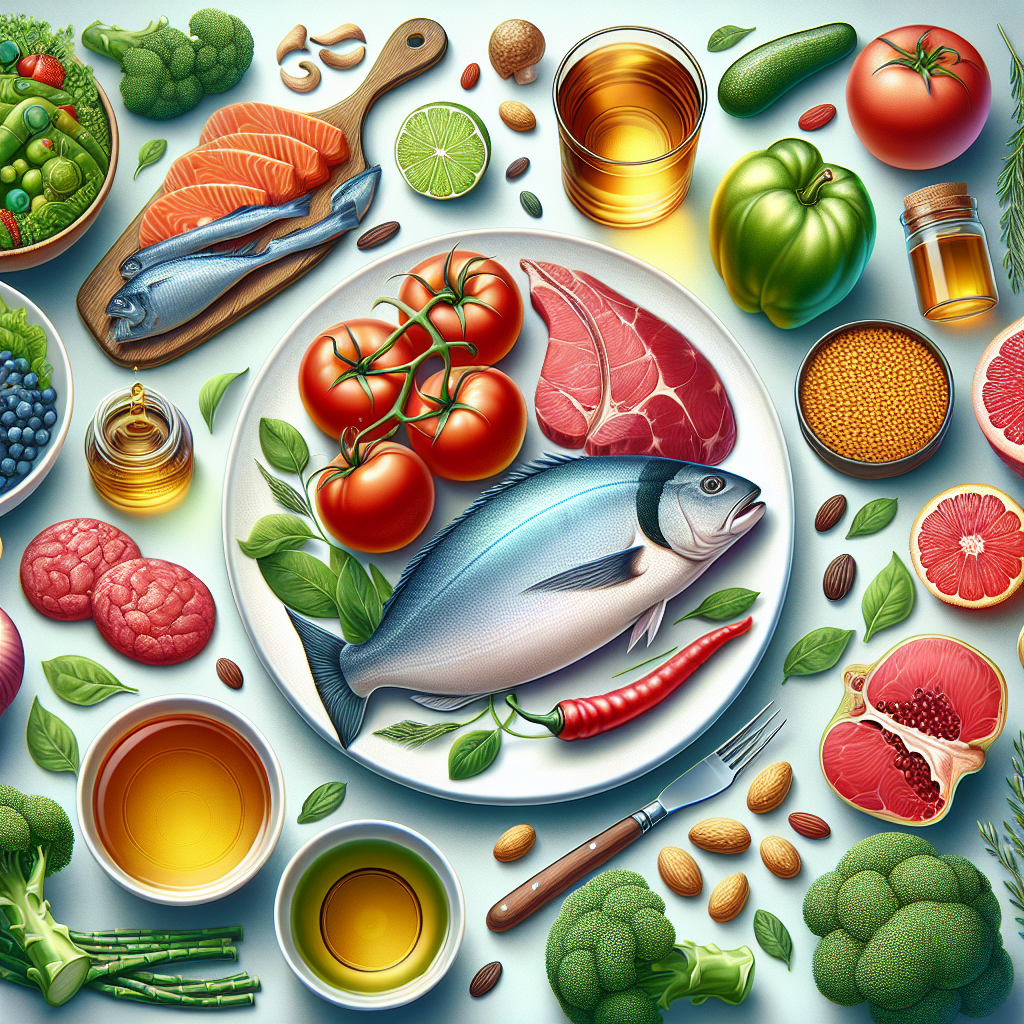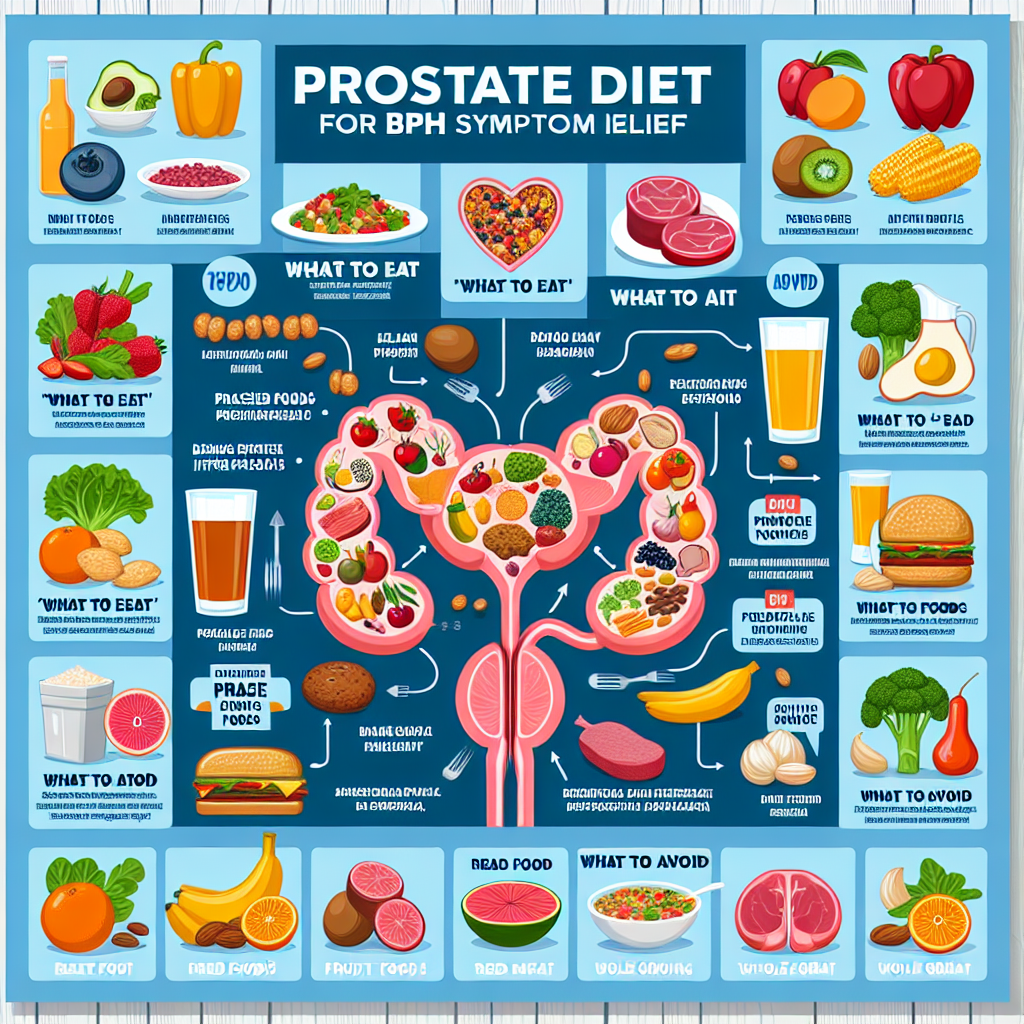
Benign Prostatic Hyperplasia (BPH), commonly known as an enlarged prostate, affects millions of men, especially those over the age of 50. While it is not cancerous, BPH can significantly impact quality of life by causing urinary symptoms such as frequent urination, weak stream, and nocturia (waking up at night to urinate). Fortunately, dietary changes can play a crucial role in managing and even reducing these symptoms.
In this article, we’ll explore the best foods to eat and what to avoid to support prostate health and relieve BPH symptoms. These recommendations are backed by scientific research and expert opinions. Watch this video by a Californian urologist to learn more about natural strategies for prostate health.
Foods That Support Prostate Health
1. Vegetables Rich in Antioxidants
Cruciferous vegetables like broccoli, cauliflower, kale, and Brussels sprouts are rich in antioxidants and phytochemicals that help reduce inflammation and oxidative stress in the prostate. These vegetables also contain sulforaphane, a compound shown to support detoxification and hormone balance.
2. Tomatoes and Lycopene
Tomatoes are a top source of lycopene, a powerful antioxidant that has been linked to a reduced risk of prostate enlargement and prostate cancer. Cooked tomatoes, such as in sauces or soups, offer higher lycopene bioavailability than raw ones.
Studies have shown that men who consume more lycopene-rich foods experience fewer urinary symptoms. Watch this video by a Californian urologist to discover how lycopene and other nutrients can naturally support prostate function.
3. Omega-3 Fatty Acids
Omega-3s, found in fatty fish like salmon, sardines, and mackerel, have anti-inflammatory properties that may help reduce prostate swelling. Including these in your diet at least twice a week can be beneficial for overall prostate health.
4. Nuts and Seeds
Pumpkin seeds, flaxseeds, and walnuts are rich in zinc and healthy fats. Zinc is essential for prostate function and has been shown to help reduce the size of an enlarged prostate.
- Eat a handful of pumpkin seeds daily
- Add ground flaxseeds to smoothies or oatmeal
- Snack on walnuts for a heart-healthy and prostate-friendly treat
Incorporating these foods into your daily routine can make a noticeable difference. Watch this video by a Californian urologist for more dietary tips and lifestyle changes that can ease BPH symptoms.
Foods to Avoid for BPH Relief
1. Red Meat and Processed Meats
High consumption of red and processed meats has been associated with increased inflammation and a higher risk of BPH. These meats are often high in saturated fats, which can exacerbate prostate issues.
2. Dairy Products
Some studies suggest that excessive intake of dairy, especially whole milk and cheese, may contribute to prostate enlargement. Opt for plant-based alternatives like almond or oat milk when possible.
3. Caffeine and Alcohol
Both caffeine and alcohol are diuretics, which can irritate the bladder and increase urinary frequency. Reducing or eliminating these beverages can help manage BPH symptoms more effectively.
Men who cut back on caffeine and alcohol often report fewer nighttime trips to the bathroom. Watch this video by a Californian urologist to learn how small changes can lead to big improvements in prostate health.
4. High-Sodium Foods
Excess salt can lead to water retention and increased blood pressure, which may worsen BPH symptoms. Avoid processed foods, canned soups, and salty snacks to keep sodium intake in check.
- Choose fresh, whole foods over packaged items
- Use herbs and spices instead of salt for flavor
- Read nutrition labels to monitor sodium content
Making these dietary adjustments can significantly improve your comfort and urinary function. Watch this video by a Californian urologist for a comprehensive guide to managing BPH naturally.
Case Study: Diet and BPH Symptom Improvement
John, a 62-year-old retiree, struggled with frequent urination and disrupted sleep due to BPH. After consulting with a nutritionist, he adopted a prostate-friendly diet rich in vegetables, omega-3s, and low in red meat and dairy. Within three months, John reported a 40% reduction in nighttime urination and improved quality of life.
His experience highlights the power of nutrition in managing prostate health. Watch this video by a Californian urologist to hear more real-life success stories and expert advice.
Conclusion: Take Control of Your Prostate Health
Managing BPH doesn’t always require medication or surgery. By making informed dietary choices, you can significantly reduce symptoms and improve your overall well-being. Focus on anti-inflammatory foods like vegetables, tomatoes, and omega-3-rich fish, while avoiding red meat, dairy, and high-sodium items.
Consistency is key. Small changes over time can lead to lasting results. For a deeper dive into natural BPH relief strategies, watch this video by a Californian urologist and take the first step toward better prostate health today.
















